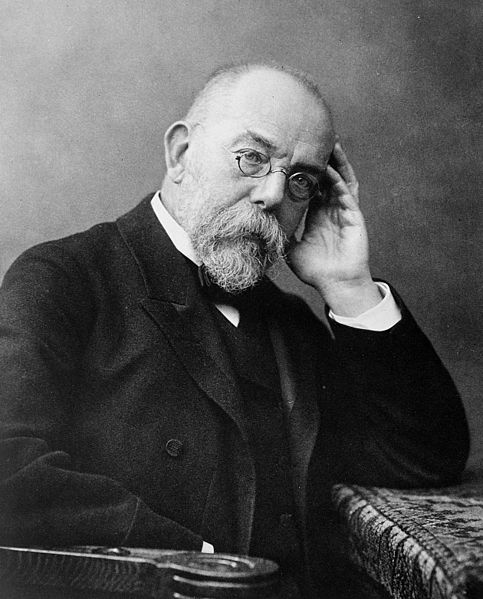Internal medicine, also known as general internal medicine in Commonwealth nations, is a medical specialty for medical doctors focused on the prevention, diagnosis, and treatment of internal diseases in adults. Medical practitioners of internal medicine are referred to as internists, or physicians in Commonwealth nations. Internists possess specialized skills in managing patients with undifferentiated or multi-system disease processes. They provide care to both hospitalized (inpatient) and ambulatory (outpatient) patients and often contribute significantly to teaching and research. Internists are qualified physicians who have undergone postgraduate training in internal medicine, and should not be confused with "interns", a term commonly used for a medical doctor who has obtained a medical degree but does not yet have a license to practice medicine unsupervised.
Robert Koch, 19th century German physician and microbiologist
History and physical examination are a vital part of the diagnostic process.
Ambulatory care or outpatient care is medical care provided on an outpatient basis, including diagnosis, observation, consultation, treatment, intervention, and rehabilitation services. This care can include advanced medical technology and procedures even when provided outside of hospitals.
The VA Sepulveda Ambulatory Care Centre in California is a large ambulatory care center where ambulatory care sensitive conditions (ACSC) are routinely assessed and managed.
A typical assessment and treatment space for patients in an ambulatory care clinic.
A nurse operating medical equipment in an ambulatory care setting.





